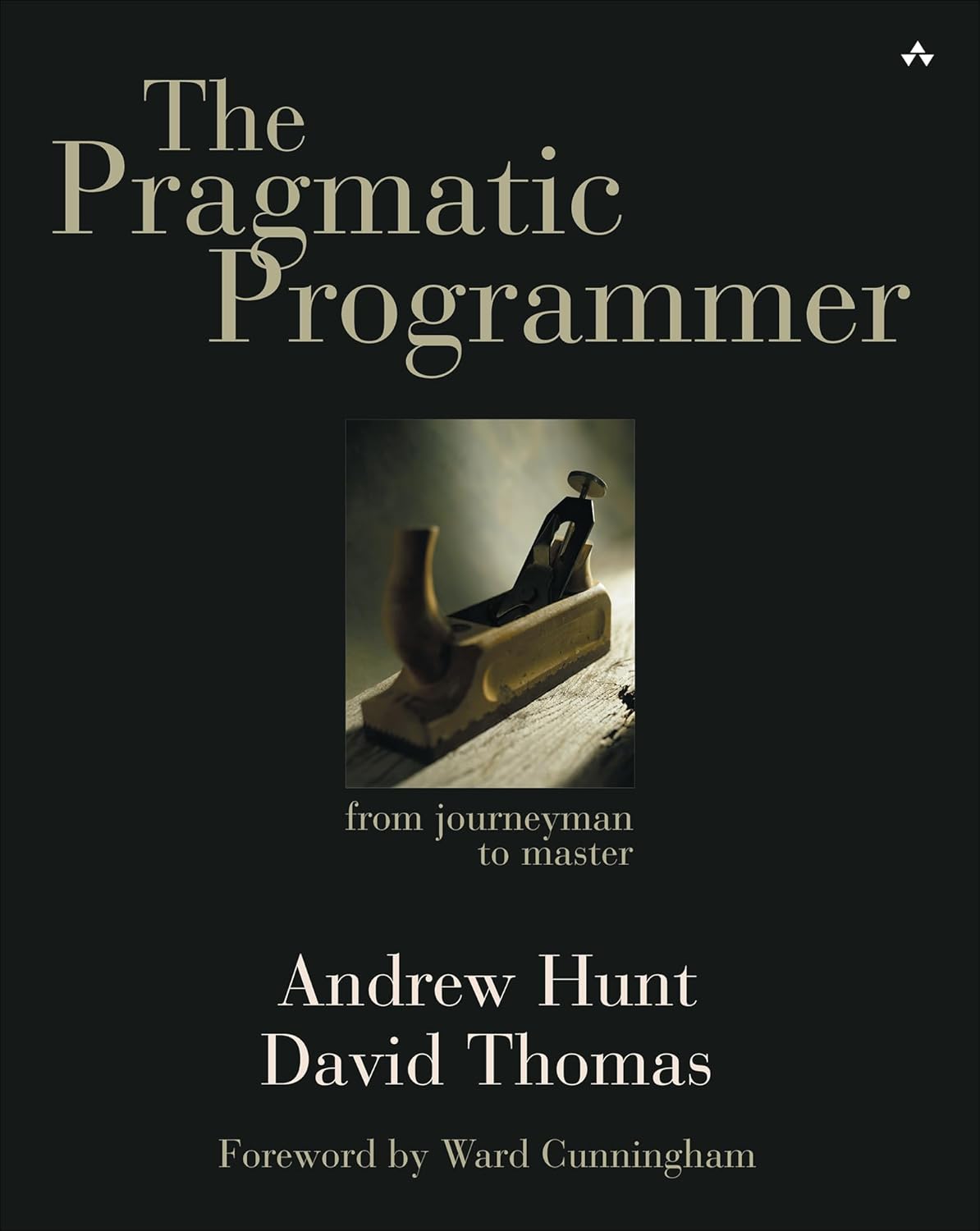The Pragmatic Programmer: From Journeyman to Master
by Andrew Hunt and David Thomas
Publisher
Addison-Wesley Professional
Year
2000
Pages
352
ISBN
978-0201616224
The Pragmatic Programmer by Andrew Hunt and David Thomas is a timeless guide that distills decades of software development experience into actionable insights for programmers of all levels. More than just a collection of tips, this book provides a holistic approach to software development, offering practical advice and techniques to create efficient, maintainable, and user-delighting software.
Written as a series of self-contained sections, the book is filled with entertaining anecdotes, thoughtful examples, and analogies that make complex concepts accessible. It emphasizes not just the "how" but also the "why" behind programming practices, helping developers think critically and improve their craft.
Key Features
- Core Programming Practices: Learn techniques for writing maintainable and adaptable code.
- Problem-Solving Strategies: Understand principles like "if you see hoof prints, think horses, not zebras" to debug effectively.
- Development Tools and Techniques: Master tools like version control, text editors, and regular expressions for efficient workflows.
- Avoid Common Pitfalls: Tips to prevent issues like software rot, duplicated knowledge, and programming by coincidence.
- Build Better Teams: Foster collaboration and pragmatic thinking within your team.
- Enhance Career Development: Insights into personal responsibility and continual learning for long-term success.
- Pattern Language: A cohesive system of solutions that reinforce each other, blending practical advice with a subtle philosophy.
What You Will Learn
- Fight software rot with maintainable and flexible code.
- Avoid duplicating knowledge and create adaptable solutions.
- Write dynamic, testable, and bulletproof code with contracts, assertions, and exceptions.
- Automate processes to improve precision and efficiency.
- Test rigorously and effectively to ensure high-quality software.
- Build teams of pragmatic programmers who deliver results.
Highlights from the Book
- Pragmatic Practices: Learn to "Think About Your Work," automate repetitive tasks, and treat meetings as opportunities for improvement.
- QWAN (Quality Without a Name): Develop an intuitive sense of what makes code and processes effective, blending philosophy with actionable techniques.
- Anecdotes and Analogies: Gain insights through relatable stories and real-world scenarios.
- Broad Coverage: From personal responsibility to architectural techniques, the book examines every facet of software development.
Who This Book Is For
This book is essential for programmers at all levels, from newcomers to seasoned developers. Whether you're learning the fundamentals or seeking to refine your skills, The Pragmatic Programmer offers valuable lessons for improving your craft and your career.
Topics Covered
- Personal responsibility and career development
- Architectural techniques for flexible and reusable code
- Automation, testing, and effective debugging
- Avoiding common pitfalls like programming by coincidence
- Capturing real requirements and delighting users
- Building collaborative and effective development teams
Why It Works
Written by programmers for programmers, this book avoids abstract theories and focuses on practical advice you can implement immediately. It embodies its philosophy in an unpretentious and relatable way, ensuring you can follow the guidance and apply it to your work.
Straight from the programming trenches, The Pragmatic Programmer is more than a book—it's a toolkit for building high-quality software and a mindset for becoming a better developer.
